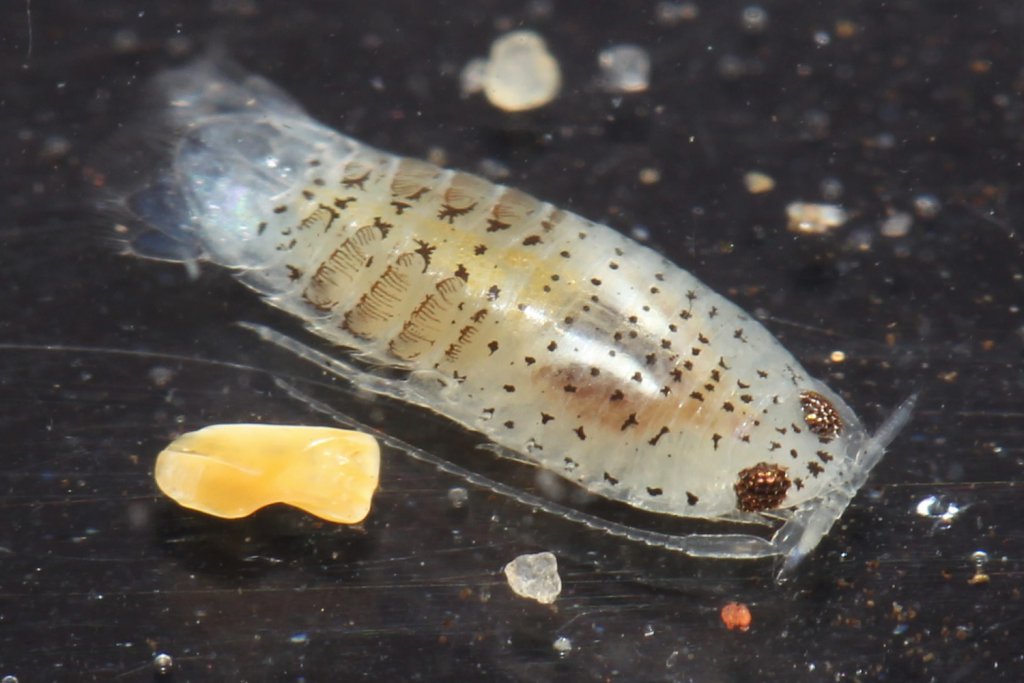Eurydice pulchra Leach, 1815
Status:
Native
ID Difficulty
Identification
Eurydice are small, fast-swimming predators and scavengers with oval bodies and elongated pleotelsons. The peduncle of the antenna has four segments, whilst the second segment of the antennule is at a right angle to the first. The body is off-white with various darker markings, and the eyes are prominent.
E. pulchra, by far the most common species in the intertidal zone, has a rounded hind margin on the pleotelson with two short spines at each side of it surrounded by longer plumose setae. The coxal plates of somites 6 and 7 have a characteristic shape which should be examined for definite identification; both are fairly pointed, especially that of somite 6. The dark markings cover both the dorsal surface and sides of this species. Males grow up to 8 mm, females to 6.5 mm.
In addition to the two other Eurydice species that are encountered intertidally, fieldworkers should be aware of the three other species that occur in (offshore) British waters, E. inermis, E. truncata and E. grimaldii (see Hansen 1905 and Jones & Naylor 1967 for details), the first two of which can come close to the shore at high tide.
Distribution and Habitat
This species is found all around the coasts of Britain and Ireland, though it is less frequent in the south-east. It is found on sandy shores; as the tide falls it burrows into the sand, emerging at night and as the tide rises to feed in the surf and shallow water. It is most easily observed swimming in the water as the tide rises in sheltered spots away from wave action.
For further information on the distribution of E. pulchra in Ireland, see here.
References
Hansen, H. J. 1905. Revision of the European marine forms of Cirolaninae, a subfamily of Crustacea Isopoda. Journal of the Linnean Society, Zoology 29: 337-373.
Jones, D. A. & E. Naylor. 1967. The distribution of Eurydice [Crustacea: Isopoda] in British Waters, including E. affinis new to Britain. Journal of The Marine Biological Association of the United Kingdom 47, 372-82.
Naylor, E. & A. Brandt. 2015. Intertidal Marine Isopods. Synopses of the British Fauna (New Series), No. 3. Field Studies Council, for The Linnean Society of London.
Links
World Register of Marine Species (WoRMS): https://www.marinespecies.org/aphia.php?p=taxdetails&id=118852
Aphotomarine: https://www.aphotomarine.com/isopoda_eurydice_pulchra_john_harvey_bug.html
Ocean Biodiversity Information System (OBIS) distribution map: https://mapper.obis.org/?taxonid=118852
https://www.biodiversitylibrary.org/page/31598365#page/467/mode/1up







